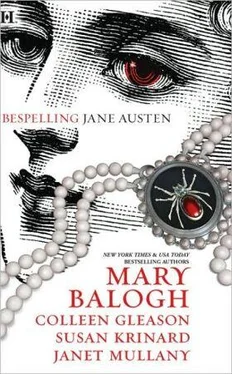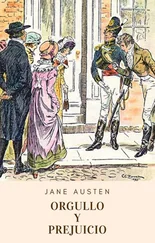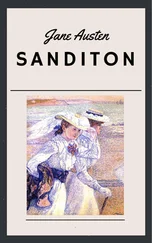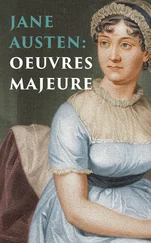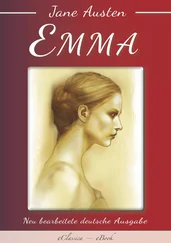Louisa looked triumphant. She was fully aware, of course, that they did not know of whom she spoke.
“The Reverend Mitford’s brother is coming to stay for a few weeks,” she said. “He was in India with his regiment, but he was wounded a year or two ago and has only recently been well enough to come home to England to finish recuperating before rejoining his regiment in Portugal. I daresay he will be fighting the forces of that dreadful monster Napoleon Bonaparte before the winter is over.”
“The Reverend Mitford’s younger brother?” Edna asked hopefully.
“No,” Louisa said. “He is the elder. And do not, pray, Edna, proceed to ask me if he is also handsome. I do not know the answer and would not be interested if I did. Rank and fortune are of far more lasting significance than good looks. The Mitfords are not a wealthy family nor a distinguished one. It is said they were in trade until two or three generations ago. It would not do for a Miss Everett of Goodrich Hall, even a younger sister, to fall in love with Captain Mitford.”
“Oh,” Edna said crossly, “you say that, Louisa, only because you intend to fall in love with him yourself.”
Louisa’s eyebrows arched upward.
“I have a better sense of my own worth,” she said, “than to consider falling in love of any importance when I turn my mind to matrimony, Edna.”
While the two of them argued, Jane looked ahead along the village street to the church and the vicarage beyond it. There was some activity outside the latter. Two gentlemen, one of them the vicar, were dismounting from horseback and handing the horses over to a servant’s care. The other gentleman was young, too, and taller than the vicar. He took a cane from the servant’s hand and leaned his weight on it, his back to the approaching gig.
But her sisters had seen the gentlemen, too, and both of them leaned forward, releasing the pressure on Jane’s arms but completely blocking her view ahead.
There was a chorus of greetings as the vicar handed first Louisa and then Edna out of the gig. At the same time he introduced them to Captain Mitford, his brother, and they exchanged bows and curtsies.
Then the vicar turned and extended a hand for Jane’s.
“And Miss Jane,” he said. “Last but by no means least.”
He helped her down. The door of the house was opening to reveal Amelia Mitford. She curtsied and beamed at Louisa, who swept through the gateway toward her, followed by Edna.
“Miss Jane,” the vicar said as they moved out of the way, “may I have the pleasure of presenting my brother, Captain Mitford? Miss Jane Everett, Robert.”
As Jane had her first look at the captain, she prepared to curtsy and murmur what was proper to the occasion.
She forgot to do either.
She had never set eyes upon him before. Of that she was quite certain. And yet she knew just as certainly that she knew him. Deeply. Intimately. Her breath caught. Her stomach muscles clenched. Her knees turned weak.
Had she been able to think rationally, she would have assured herself that her temporary paralysis was not occasioned by his looks, though he was certainly a handsome man. He was tall with dark hair and smiling blue eyes and a sun-bronzed complexion. He was broad-shouldered and narrow-hipped, his long, shapely legs accentuated by the close fit of his riding breeches and supple leather boots. He was also leaning upon his cane as if he needed it to support his weight.
She would also have told herself that she had not fallen instantly in love with him. She had never been in love, and she was far too sensible to fall for a complete stranger even if he was a splendid figure of a man. She would even have said that it was not any real attraction that had bowled her over. Attraction ought never to be a purely physical thing. It was something that must grow gradually between a man and a woman as they became familiar with each other’s character.
She did not know Captain Mitford’s character.
She did not know Captain Mitford.
And yet she knew him. In the depths of her being she knew him.
As if she had known him for all eternity.
As the real world fell into place about her again and she completed her curtsy and her polite “How do you do, sir?” she did not know how long had passed. Probably not even half a minute. Although he had raised his eyebrows, no one else seemed to show any awareness that the world had stopped on its axis for some indeterminate length of time before lurching into motion again.
She felt disoriented and inexplicably frightened.
“Miss Jane Everett,” he said in a voice that was unfamiliar to her ears, though it rang a familiar chord somewhere in the region of her heart. “My pleasure. Shall we follow the others indoors?”
She might as well have walked after all. She felt breathless.
CAPTAIN ROBERT MITFORD looked at the neat little figure of Miss Jane Everett as she preceded him into the vicarage and tried to imagine that he knew her, that somewhere deep inside him there was a spark of recognition.
There was none.
Which did not necessarily mean that she was not the one.
The thing was that his soul mate never looked the same in any two lifetimes. He had seen that with some fascination when revisiting some of those lifetimes under the guidance of his guru in India. In one lifetime she had been a lean, dark-complexioned washerwoman for a noble family in ancient Egypt, and he had been a priest at one of the royal temples—far above her in station. In another life she had been the lithe, black-haired daughter of an aboriginal chief in the Americas, and he had been a captive from another tribe. She had been the daughter of a Russian landowner once, he a serf on the man’s land. And she had been a nun in medieval Italy, he a papal guard. It had been a forbidden love that time.
There had always been some impediment, of course—and always a chance to overcome that impediment, to conquer all with the power of their love for each other.
They had never made that conquest.
Not yet. But they would.
And so they were fated to meet again and again through countless lifetimes until they found the courage to choose love above all the forces, petty or otherwise, that so often appeared of more importance. This particular lesson related to romantic love, but there was more awaiting them once they had mastered it. If they could learn to choose love in its romantic guise, they could eventually learn—together—to choose it in all its many guises and to move beyond any guise to an understanding of the vast, unending breadth and height and depth of love itself.
Of the one love.
Of the one.
It had all seemed perfectly clear to Robert while he was in India recovering from his wounds. He had been able to see other lifetimes and how each time courage had failed him, or her, or both of them. He had been able to see the spirit world between lifetimes and what he and she together had discussed, with the help of their spirit guides, what they had planned and hoped to accomplish during their next incarnation.
In India he had come to understand that each time its purpose was to meet his soul mate again and try once more to unite in perfect love with her.
The catch was, though, that he had never been allowed any glimpse into the future. He had been given no clue as to the identity of his soul mate in this lifetime or how he would recognize her when he met her. Forgetfulness was a condition of human life—forgetfulness of all that had passed before physical birth. He was one of the privileged few in that he had been allowed glimpses into the vast past he had forgotten when he was born Robert Vaughan Mitford twenty-seven years ago.
But the privilege extended only so far.
Читать дальше
